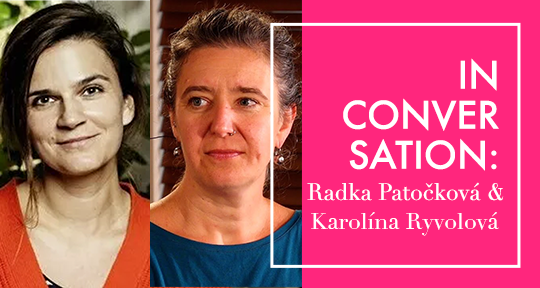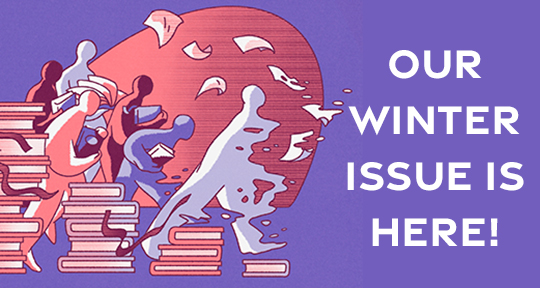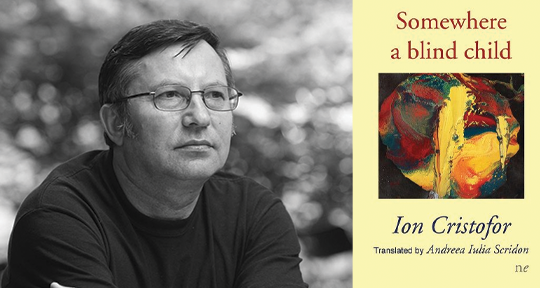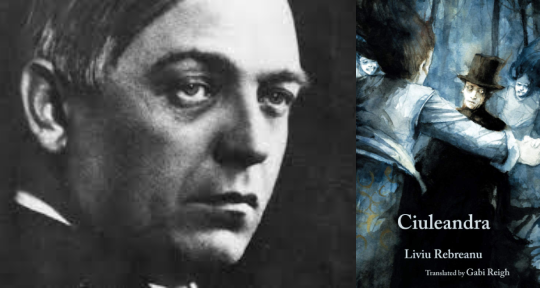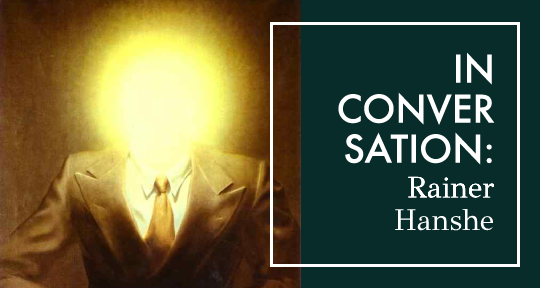Roma literature has long been suppressed, persecuted, and overlooked in the Central European literary scene, despite its wealth of stories and importance. Founded in 2012, KHER—which means a house or a room in Romani—is the only independent publishing house in the Czech Republic to focus exclusively on the publication and promotion of Romani authors, a homeland for the support and respect of Romani writers’ creative endeavours. In this two-part interview, Asymptote’s Editor-at-Large Julia Sherwood has spoken to KHER’s co-founder and director Radka Patočková, and one of its editors, Karolína Ryvolová, first on the founding and development of KHER as a renowned publishing house, and then on Roma literature and identity in the broader literary scene.
Julia Sherwood: It must have taken some courage to found a press focusing exclusively on Roma writers, particularly in the Czech Republic, a country that—as you, Radka, put it in a recent interview—”has a long way to go in terms of its relations with the Roma.“ You went on to describe common reactions you received: “How many Roma authors do we have? Who would buy and read their books? What might the quality of Romani writing be like?” So my question is: What made you embark on this risky enterprise despite all these challenges, and what was the personal and professional path that brought you to this project?
Radka Patočková (RP): Let me start with the end of your question. Since the early days, when we founded the publishing house, our team at KHER has undergone some changes. In those days we were in our thirties, full of youthful enthusiasm and convinced by our previous experience that one could take action and effect change, rather than just talk about it. Had someone told us about everything this would involve over the years, and had we known what we would have to go through professionally as well as in terms of our private lives, we might have become disheartened. Some have gradually drifted away, but they continue to root for us from the sidelines and we are grateful to them for their time and enthusiasm at the start.
We met as students of Romani studies at Charles University, and our shared interest in literature brought us to publishing. Cultural and financial management, on the other hand—the nitty-gritty of publishing, marketing, and accounting—were areas we had to get into gradually. We learned that love of literature, closeness to the Roma people, knowledge of Romani and the realities of the life of the Roma, or friendly relations with authors—all of that is not enough to bring a book into the world. We had to blaze the trail slowly, one step at a time, sometimes going back or hitting a dead end, but now we feel increasingly at home in the vast area of activity that publishing entails. To sum up: in April 2023 we are much wiser but also more realistic than we were when we set up KHER eleven years ago. And that’s a good thing; perhaps too much rational thinking in 2013 could have meant that the idea would have remained on paper and in discussions in cafés.
JS: Since its inception, KHER has published over a dozen books—starting with e-books and later moving to print—ranging from history, biography, memoirs, and fiction to children’s stories, and you have also organised writing workshops and educational activities. How many people are involved in running KHER and how is your work funded?
RP: KHER is an association made up of eleven members, some with a background in Romani studies or economics, and the rest Roma professionals—an IT specialist, historian, journalist, author, and translator. However, the core group that ensures the day-to-day running of the publishing house consists of just five women. So when people want to come to see us, we tell them with a smile that they’re welcome as long as they don’t mind visiting us in our kitchens. That is another thing I think is remarkable: we don’t have an actual office, a space for working, discussing things, and coming up with creative ideas, which can sometimes be a disadvantage. Fortunately, Prague is full of cafés and some are prepared to have our group working there on a regular basis. READ MORE…

